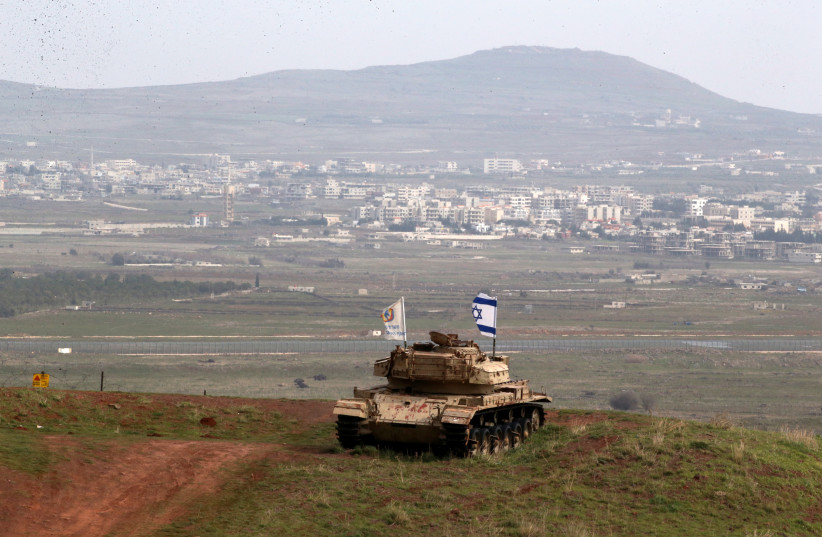Losing the security measures in place with the Russians in Syria would be a strategic problem for the IAF as Jerusalem continues to maintain a diplomatic balance over the war in Ukraine.
Russia intervened in the Syrian conflict in September 2015 on the side of embattled President Bashar Assad, and Moscow is seen as the main power to speak with when Israel wants to carry out strikes in the country.
Israel’s war-between-wars campaign has seen thousands of airstrikes against Iranian and Hezbollah targets in Syria since it began in 2013, including hitting convoys of advanced weaponry heading to Lebanon. Dozens of clandestine operations are also alleged by foreign media to have occurred in Syria and Lebanon against targets that are perceived to threaten the Jewish state.
Russia and Israel have been using safety measures to avoid any unwanted conflict. Moscow has allowed the IAF to maintain its freedom of operation over Syria as long as it does not endanger Russian forces.
With Russia turning a blind eye to strikes, Israel says it has been able to significantly disrupt the smuggling routes by land, at sea and in the air and achieve satisfactory results in its campaign.

Russia also informs Israel when it is carrying out patrols along the northern border over Syria’s Golan Heights, such as in late January, when Russian SU-34, SU-35 and an A-50 early-warning and control aircraft flew alongside MiG-23 and MiG-29 fighter jets from the Syrian Arab Army.
“The mission route included the Golan Heights, the southern border of Syria, the Euphrates River and northern Syria,” read a statement by the Russian Defense Ministry. “The Russian pilots took off from Khmeimim Air Base, while the Syrians took off from the Sayqal and Al-Dumayur bases near Damascus.”
“The two countries’ pilots developed skills for cooperation in various situations,” it added. “This kind of joint mission will now take place on a regular basis.”
Prior to Russia’s invasion of Ukraine, Defense Minister Sergei Shoigu traveled to Syria and spoke with Assad about military-technical cooperation.
Though the IAF does not see the safety measures between the two air forces stopping, Russia’s invasion of Ukraine has made them become more aware of the situation along its northern border. The IAF also does not expect to see Russian fighter jets intercept Israeli jets in Syrian or Lebanese airspace.
FORMER DEFENSE minister Moshe “Boogie” Ya’alon, who initiated the measures with Russia when he was in office in 2015, said he does not think Moscow will stop talking with Jerusalem regarding Syria.
Ya’alon said he thinks there is a mistaken assumption that “if we take this position or another, there will be a hostile front between Russia and Israel. But the interests, even in Syria, between Russia and Israel are the same.”
“It is much better if we do the coordination,” Ya’alon said. “Even then [when he started the coordination with Russia], we knew Russia had their interests. I said to them, ‘We won’t disturb you; you don’t disturb us.’ Also now, I don’t think Russians have any interest to make issues for Israeli aircraft or other attacks on Iran in Syria. But if it happens, God forbid, Israel has capabilities.”
The safety measures in place since 2015 have recently come under scrutiny after Russian President Vladimir Putin invaded neighboring Ukraine under the pretext of “denazifying” the country. Israel has been heavily criticized for not taking a tougher stance on Moscow in line with the United States and dozens of other countries from around the world.
According to a report on the Axios website, although Washington understands that Jerusalem needs to balance its security interests, it has to also take a clear stance on the war because it is a “matter of right and wrong.”
Israeli officials have said the IDF’s war-between-wars campaign has not yet been affected by the Ukraine-Russia war, and Russian Ambassador to Israel Anatoly Viktorov last week said the status quo would continue because it “helps ensure the safety and security of our army.”
Putin has even threatened to use his nuclear weapons – a move that senior IDF officials have called extremely worrisome – so Israel needs to continue to tread safely through the stormy waters currently flowing around it.
When Putin launched the invasion – the largest invasion in Europe since World War II – he said that “Russia was left with no other choice.”
According to Ya’alon, who is the chairman of the upcoming ISDEF (Israel’s largest defense, homeland security and cyber exhibition), Russia does not want to start another hostile front with a state like Israel when it is also dealing with Iran in Syria as well as a war in Ukraine.
He said he did not want to discuss specifics of what Israel could or could not do militarily in the event that the coordination mechanism between Israel and Russia breaks down, but he reiterated that until now, there has been only one Israeli public statement against Russia’s actions in Ukraine.
“We need to be on the right side of history,” Ya’alon stressed. “This hasn’t been enough. Bennett must also say it. It needs to be clear. It won’t lead to a hostile front in Syria because of their interests.”
Yonah Jeremy Bob contributed to this report.